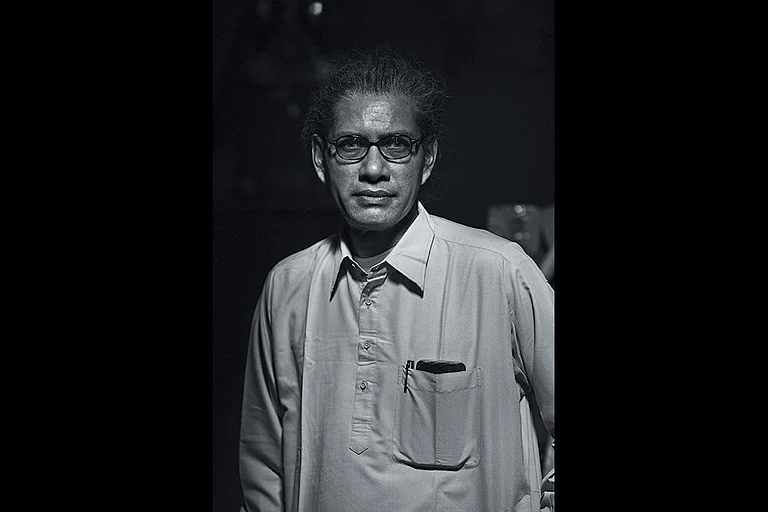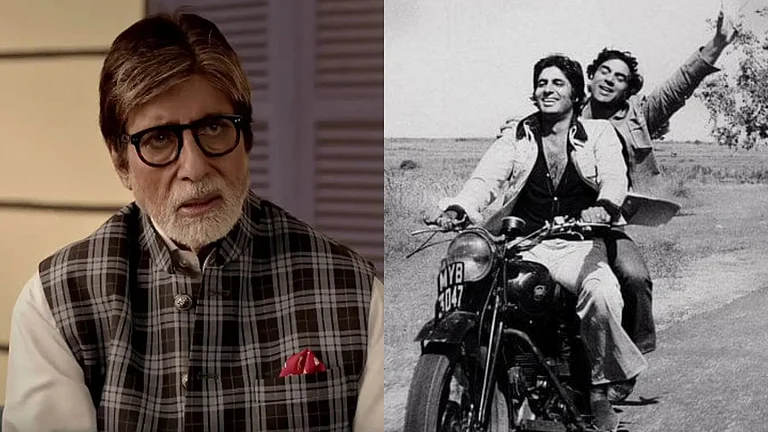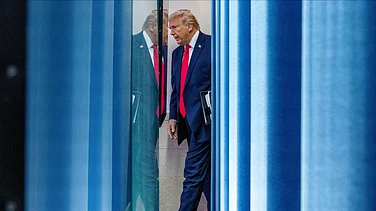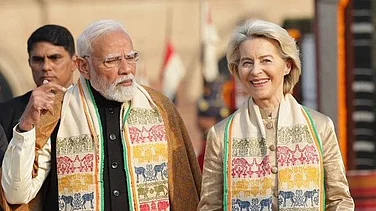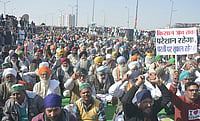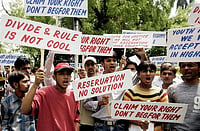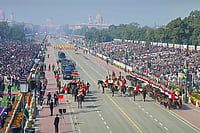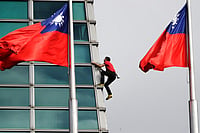Indians across the world witnessed familiar cheers last week when Rishi Sunak was appointed as the Prime Minister of the United Kingdom. Before Sunak, such cheering was witnessed when Kamala Harris was sworn in as the Vice President of the United States of America.
Both of these appointments were highly symbolic. Harris was the first woman, the first person of colour, and the first person of Indian heritage to be the US Vice President. Sunak is also of Indian heritage and is a practicing Hindu. His ancestors were once colonised by his current country under the racist ‘civilising mission’ —the white man’s burden— and he is today the leader of that country.
The incredible stories of Kamala and Sunak are not in isolation but are representative of the wide success persons of Indian heritage have had in the West, rising to top positions and holding such sway in the political arena that every mainstream party seeks them.
At over 4 million, persons of Indian heritage in the United States —commonly called Indian-Americans or Indo-Americans— form the second-largest ethnic minority. Several politicians have emerged from amongst them, such as Pramila Jayapal and Nikki Haley, and observers have said that Kamala’s swearing in as Vice President marked the ‘coming of age’ of the community.
Similarly in Canada, persons of Indian heritage have emerged as leaders. The community itself is a powerful constituency.
The rise of these groups in their respective countries politically, however, is not uniform. While Indian-Americans traditionally voted for Democrats, large sections have come out as Republican-leaning in recent years. Similarly, support of the Conservative Party has risen in the UK recently among persons of Indian origin. The polarisation among Indians has also reflected in the polarisation among persons of Indian heritage abroad.
Brief history of the rise of Indian diaspora
There are two distinct phases of Indian diaspora or communities abroad with Indian origin.
In the first phase, Indians in large numbers from present-day Bihar and Uttar Pradesh were taken to colonies in Africa, East Asia, and the Caribbean as a substitute for slaves.
In the second phase, India began to export labour in response to technological and natural resources boom abroad. Indians started going to the USA and UK as highly skilled labour, such as doctors and engineers. Indians also reached the Gulf and Middle East with the oil boom in the second half of the 20th century.
The Ministry of External Affairs (MEA) listed some of the broad trends in Indian diaspora and persons of Indian origin abroad in Report of the High Level Committee on the Indian Diaspora:
“By far the largest numbers, however, headed towards the UK from East Africa and India. Today two-thirds of the Indian community in the 15-member European Union (EU), the largest economic entity in the world, is in the UK...There are several British industrialists of Indian origin, including Lakshmi Mittal, the Hinduja brothers, and Swaraj Paul,” says the Report, published in 2001.
For the United States, the report said, “The Indian community enjoys the distinction of being one of the highest earning, best educated, and fastest growing ethnic groups...A section of financially powerful and politically well-connected Indo-Americans has emerged during the last decade [1990s].”
In the two decades since the MEA published the report, the community of Indian origin has only grown in numbers and influence. While it has come with certain positives for the Indian state, such as increased lobbying and bipartisan support in the United States, there have been certain headaches for the Indian state as well, as the rise of Indians and persons of Indian heritage abroad means a greater focus on India which at times brings greater scrutiny —and criticism— of Indian policies.
The ‘desi’ political power in USA, UK, Canada
The political clout of voters in the West with Indian heritage might baffle outsiders as elections are won with majorities and these communities are still minorities despite their large numbers.
The political power of these communities lies not in their absolute numbers but in their ability to be swing voters. Indian-American voters have shown to have the ability to sway the elections in favour of either one of the candidates and this is why everyone from Donald Trump to Boris Johnson in the UK and Jagmeet Singh and Justin Trudeau in Canada wooed persons with Indian heritage in elections in their countries.
Trump appealed to the right wing and right-leaning Indian Americans, particularly Hindus, and claimed to be a “big fan of Hindus”. The Republican Hindu Coalition campaigned for Trump and some of his biggest supporters were persons of Indian origin, such as Chicago-based businessman Shalabh Kumar.
“With an estimated 1.8 million eligible voters, Indian-Americans form a tinier than tiny part of the US electorate. But they look heftier because of their weighted equity in battleground — also called swing — states won or lost by slim margins in close contests. Just three of them swung it for Trump in 2016 — Michigan, Pennsylvania and Wisconsin; by 0.2, 0.7 and 0.8 percentage points respectively,” reported Hindustan Times.
Indian-origin people and the Indian diaspora were also critical to the Conservative Party’s campaign in the 2019 UK general elections. Overseas Friends of Bharatiya Janata Party (OF-BJP) in the UK had campaigned against the Labour Party and in favour of Conservatives in 48 constituencies. Indian-origin voters swayed as many as 40 of these seats, according to a report.
Canada has a large Sikh and Punjabi community of Indian origin and there are three ministers of Indian origin in Trudeau’s government. The person on whose outside support Trudeau’s government rests is also of Indian origin — New Democratic Party (NDP) leader Jagmeet Singh.
“The Indian diaspora in Canada is much sought after as a support base as they tend to be high income professionals and educated. As a group, the people of Indian origin, especially the Sikh diaspora in Canada have become a powerful group and prominent voice in domestic political space,” notes Indian Council of World Affairs (ICWA), and adds that the number is only rising.
“Alberta has three Indian origin members of Parliament out of 34 for the province, British Colombia has five out of 41 with prominent Sikh leaders such as Jagmeet Singh and Harjit Sajjan. Apart from this there are a number of political leaders of Indian origin who are currently not members of Parliament. In the 2015 elections in Canada, Indian Canadians won a record nineteen seats in the Parliament,” reports ICWA.
The diaspora politics and Indian state
Engagement with the diaspora has been key to Government of India in recent years.
Whenever Prime Minister Narendra Modi or External Affairs Minister S Jaishankar make foreign visits, meeting the diaspora is key part of their itineraries.
Some of the most memorable moments from Modi’s tenure abroad has been his engagements with the Indian diaspora, such as the ‘Howdy Modi’ event in 2019 and an event at Madison Square Garden in New York in 2014.
However, engaging with the diaspora and their political rise has also come with a set of problems for Modi government. During the year-long farmers protests, large sections of the diaspora in Canada and United States supported the protests. People of Indian origin, particularly in Canada, waged social media campaigns against Modi and his government and built a pro-protests narrative in mainstream media.
Poet Rupi Kaur, comic Lilly Singh, and politician Jagmeet Singh, and even Prime Minister Justin Trudeau vocally supported the protesters, and Modi eventually had to surrender to their demands. American leaders such as Pramila Jayapal have also criticised the Modi government.
This suggests that persons of Indian origin in positions of power in the West have carved out their unique political identities, which are more about their current countries than the one of their origin. However, the country of origin continues of weigh heavily over their lives, reflected in the polarisation seen among the communities abroad, such as in the UK where the stance of Labour and Conservative parties divided the Indian-origin communities.
In Canada, the issue of Khalistan —a separate nation for Sikhs carved out of Indian Punjab— is also polarising for the community there. It also concerns the Indian state as Canada has become a haven for Khalistani elements, who have acquired political clout to the extent that two of the major political parties in the country —Trudeau’s Liberals and Jagmeet’s NDP— tolerate them and seek their support. The political clout of Khalistani elements is therefore a cause of concern for New Delhi.
Therefore, while the diaspora can be a blessing in rousing support, such as regarding India’s nuclear ambitions, it can also be a headache for the state as diaspora is multidimensional with several shades, ranging from supportive to critical to outright hostile.







